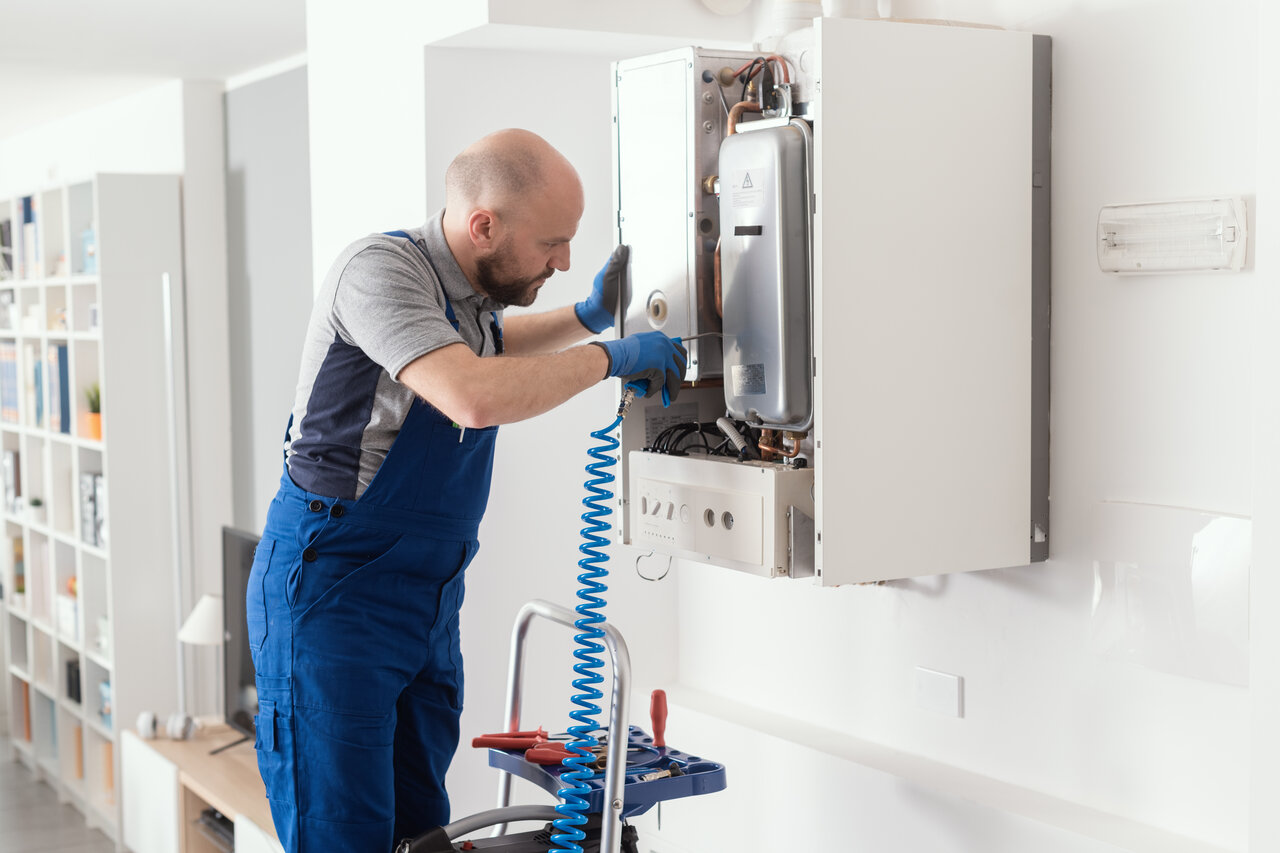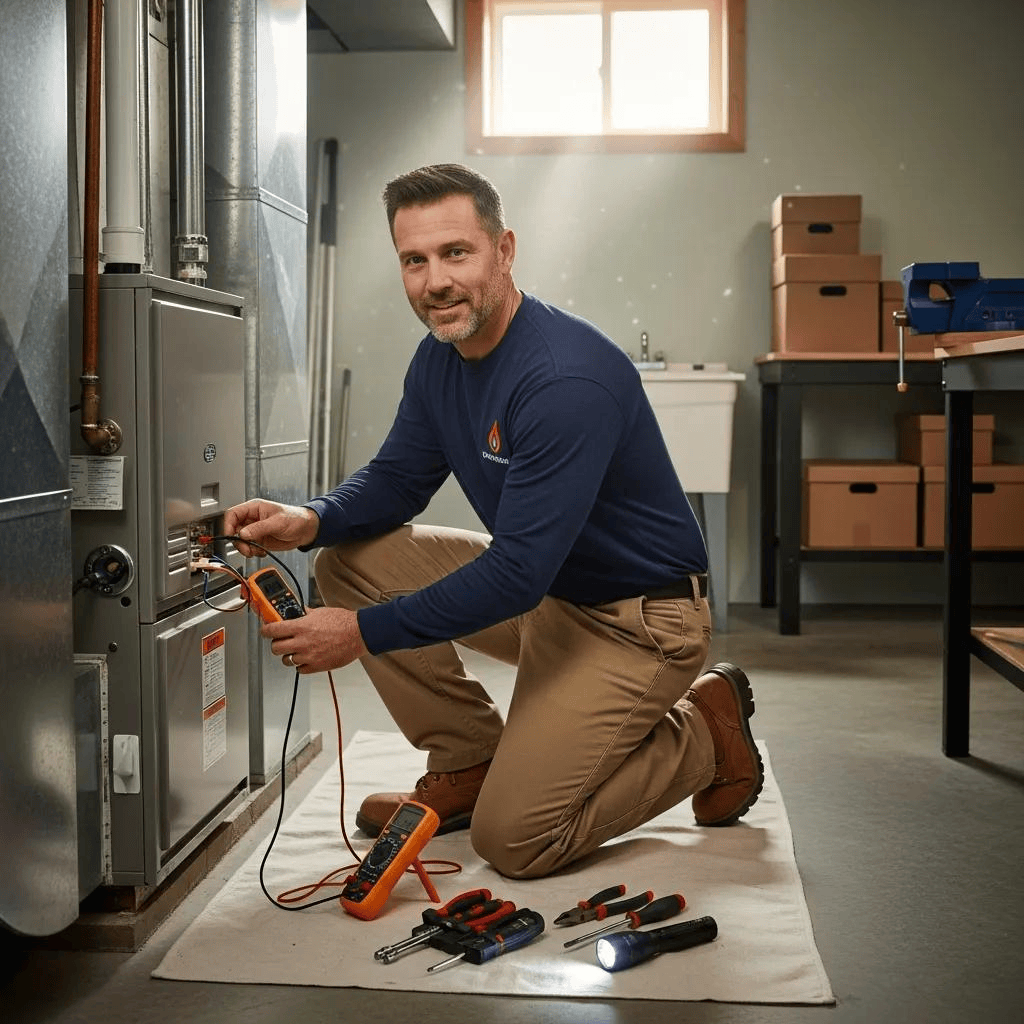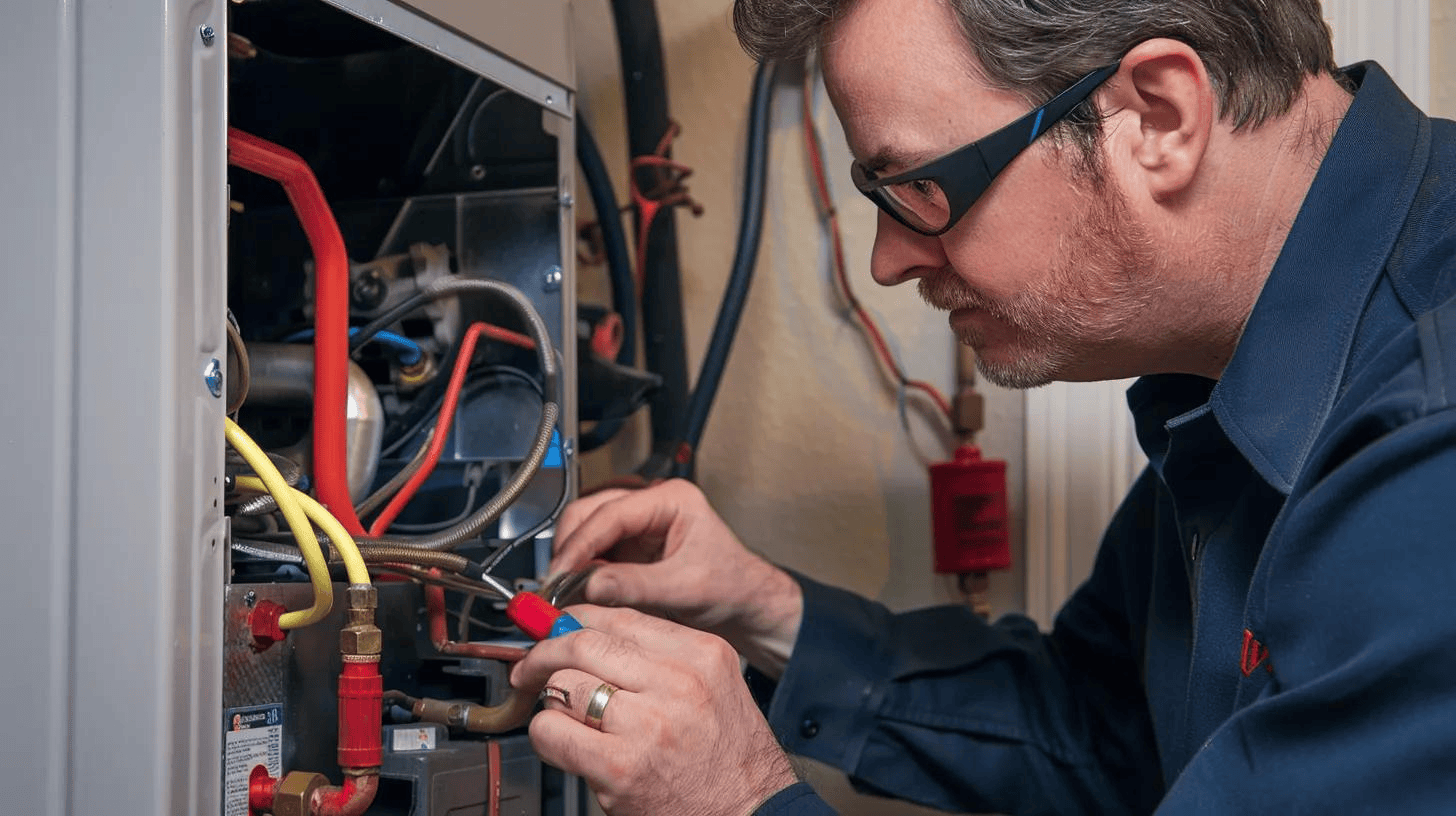
It’s frustrating to start your day in Phoenix and hear a loud banging noise when your furnace kicks on. That noise isn't just unpleasant, it’s often a sign that something isn’t working the way it should. Many homeowners hear these sounds and assume their system just needs time to warm up, but ignoring those noises could lead to higher energy bills or unexpected problems later.
In a climate like Phoenix, reliable heating is still important during the cooler months, especially overnight. A banging noise at startup usually points to a deeper issue with how the furnace is firing or how the air is moving through the ducts. Knowing what these sounds mean and what causes them can help you avoid bigger problems and possibly extend the life of your system.
Common Causes Of Furnace Banging Noises
Furnace banging noises are more than just a startup quirk. Most of these issues come from pressure or delayed ignition, and they’ll only get worse if left alone. Below are the three most common causes of banging sounds when a furnace starts.
1. Delayed Ignition
This is one of the most common reasons for a banging sound. When the burners don't ignite right away, gas builds up in the combustion chamber. Once it finally lights, it creates that small explosion you hear as a bang. Dirty burners, clogged ports, or ignition issues can all contribute to this delay.
2. Expanding and Contracting Ducts
Ducts in Phoenix homes often deal with dramatic temperature swings. When hot air rushes through cold metal ducts, the sudden expansion can cause loud popping or banging sounds. If your system was installed without enough give or the ducts are too thin, this can become a recurring issue. It doesn't necessarily mean the system is broken, but it does point to poor installation or material quality.
3. Dirty Burners
Over time, dirt and debris can build up on the burners, preventing them from firing quickly and evenly. This again causes delayed ignition. Dirty burners can also reduce system efficiency and make it harder to keep your home warm. If you haven't had your furnace cleaned in a while, this could be the source of both the sound and poor heat performance.
Each of these problems can point to larger concerns, like safety, performance drops, or future breakdowns. That's why it’s best to have any loud or sudden sounds looked at promptly. In many Phoenix homes, it's easy to overlook a subtle noise like this until one day the furnace doesn’t turn on at all.
Potential Risks Linked To Furnace Noises
When a furnace in your Phoenix home starts making banging noises, it's more than just a nuisance. That sound could point to safety concerns or be a warning sign of something about to fail. Ignoring these noises can lead to more severe problems, some of which can affect not just your comfort but also your home and health.
One of the biggest concerns is safety. A delayed ignition, for example, creates a mini explosion in your furnace. Over time, that buildup can damage internal parts, crack the heat exchanger, or cause a fire hazard. This is especially concerning if your setup is older or hasn't been inspected in a while.
Another risk is long-term damage to your heating system. Constant banging stresses the metal components and ductwork, which can loosen parts or create air leaks. These leaks reduce efficiency and make your furnace work harder to heat the same space. That can eventually cause the system to overheat or shut down unexpectedly.
Here are a few problems that can get worse if ignored:
- Cracked heat exchangers due to repeated pressure spikes
- Higher heating bills from energy loss through damaged ducts
- More frequent short cycling or complete system failure
- Carbon monoxide leaking into your home when furnaces malfunction
As these issues build up, you're not just dealing with a loud sound anymore. You're facing bigger hazards inside your home. That’s why it’s a good idea to act early when those banging noises start.
Steps To Diagnose The Problem
You don’t need to be an expert to spot the early signs of a furnace issue, especially if you know what to look and listen for. While repairs should always be left to trained technicians, there are a few basic steps homeowners in Phoenix can take to better understand what’s causing the banging sound.
Start by giving the furnace a visual check. Take a look at the burner area. If it’s dusty, that may be a clue that your burners are too dirty to light immediately, which is a common reason for delayed ignition. You'll also want to look around the ducts and note if there are any signs of loose panels or damage.
Next, listen closely when the furnace starts up:
- Do you hear the blower motor come on first?
- Is the sound a single bang or a series of popping noises?
- Does it happen right before or right after the heat kicks in?
Being aware of when the noise occurs during the startup cycle can help narrow down whether it’s combustion-related or something linked to the ductwork.
Then check the ventilation and ducts. If you've noticed banging when the air flows through, it could be due to the metal expanding from the sudden heat. Look for ducts that appear pinched or overly thin. In some cases, reinforcing the duct shape or better securing sections can reduce these pressure shifts.
It’s never a good idea to open sealed compartments or tinker with gas components. Once you've gathered a few observations, trained technicians can use that information to quickly trace and resolve the issue. Staying aware of these small signs is a useful first step toward protecting your heating equipment.
How Our Professionals Can Help
When furnace problems go beyond basic symptoms, having trained help is the safest and most effective way to bring your system back to normal. Our technicians are equipped to dig deep into the root cause of banging noises, rather than just treating the noise itself.
The inspection process begins with checking ignition timing, burner cleanliness, and heat exchanger performance. This isn't something that can be guessed at with a flashlight. Our professionals use the right tools to detect where the delay is coming from, whether it’s a gas supply problem or ventilation restriction. Diagnosing early helps prevent more serious problems later.
Repair work is focused on long-term function and safety. That may mean cleaning out or replacing dirty burners, adjusting the ignition system, or reinforcing ductwork panels to reduce sound and strain. Our technicians make sure everything is aligned with the system's original design so stress points don’t return.
We also offer scheduled preventive maintenance that targets common noise causes before they start. This includes:
- Cleaning and checking burner assemblies
- Inspecting ignition and sensor systems
- Examining ductwork for looseness or damage
- Lubricating moving parts to reduce wear
These maintenance steps protect the investment you’ve made in your HVAC system and help keep it running quietly. In a city like Phoenix, where you rely on heating during colder nights, staying ahead of these issues can make all the difference.
A Peaceful Start-Up Experience Awaits
Heating issues often start from problems that seem small but grow louder and harder to ignore. No one wants to wake up in the middle of the night to strange furnace noises. Especially in Phoenix, you need a setup that works without surprises.
The good news is that furnace banging doesn’t have to turn into something worse. Whether it’s dirty burners, duct shape issues, or delayed ignition, these are all problems that can be caught and fixed with a professional inspection. Catch them early enough, and you can keep your system safe, efficient, and quiet for the rest of the season.
If your furnace issues have you worrying about safety and efficiency, trust LJ Refrigeration Co. to help you stay ahead of potential damage with timely inspections and repairs. Explore heating services in Phoenix to prevent small problems from becoming costly repairs. For a quick estimate or to book a service visit, please contact us today.
Customer Testimonials
Hear directly from our customers about the quality, honesty, and care we bring to every job.



Short Heading Goes Here









